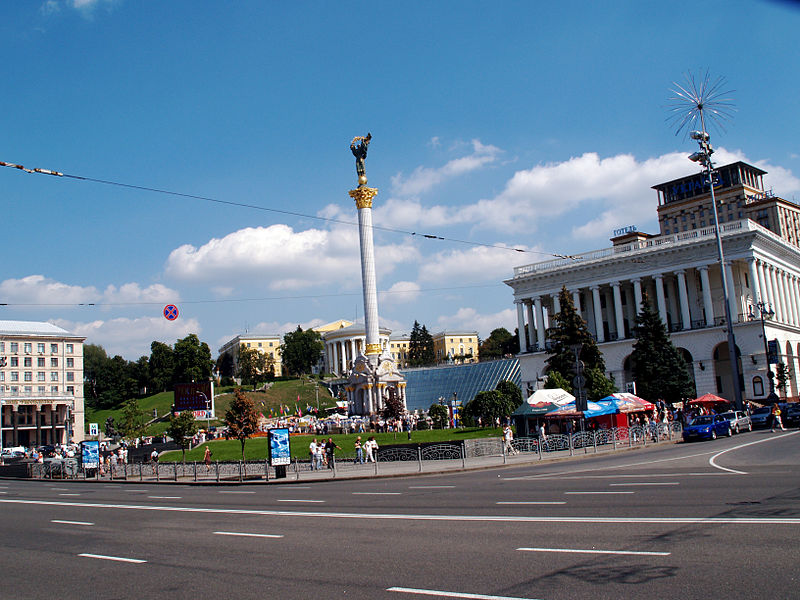
Economists and experts analysing developments in Eastern European countries often refer to the current tax reform in Ukraine.
Tax innovations in the former post-Soviet countries are among the most interesting processes for economists, as the transition from a planned economy to a market economy framework is a surprisingly interesting issue. The process is different from the way capitalism was shaped in the Wild West. Although it shares many of the same features. Certain issues of the development of the tax system in post-Soviet Ukraine were considered in the works of S. Johnson, J. McMillan, and C. Woodruff “Entrepreneurs and the Ordering of Institutional Reform: Poland, Slovakia, Romania, Russia and Ukraine Compared” (2000), D. Kaufmann “The Missing Pillar of a Growth Strategy for Ukraine: Institutional and Policy Reforms for Private Sector Development” (1997), A. Aslund “How Ukraine Became a Market Economy and Democracy” (2009), M. Berenson “Taxes and Trust: From Coercion to Compliance in Poland, Russian and Ukraine” (2018). The authors examine the milestones in the development of the tax system in Ukraine, emphasising the strong influence of post-totalitarian tendencies. The tax system of Ukraine began to form only in 1996 when President Leonid Kuchma approved a Decree “On the Formation of the State Tax Administration of Ukraine and Local State Tax Administrations”.
It is clear that Ukraine's tax system is now at an early stage of development. It is closely linked to the total control of the " government lobbyists", corruption and shady structures, who have adjusted the system of laws and regulations year after year in such a way as to reap their benefits. As a result, the tax system has become a woven fabric of legislation favourable to certain pressure groups closely entwined with the Ukrainian government. And despite changes in the legislative and executive branches of power, it has continued throughout the 30 years of the Ukrainian economy's development. Furthermore, the purported purge of corruption and tax crimes, which the current presidential administration in Kyiv is pushing, should entail tax reform, which is supposed to level the playing field for all economic groups and investors. The decisions made by the president of Ukraine and its parliament are crucial - either they will reduce the situation to the economic chaos of the 1990s, derailing development, or they will give carte blanche to the state to manage the country's economy and boost growth for a long or short time.
Milton Friedman, born in Berehove (now Ukraine), in his book Capitalism and Freedom (1962) strongly emphasised the need to preserve economic, political and individual freedoms. Mr. Friedman advocated market liberalism when it was generally accepted that the welfare state and the regulatory role of government were beyond criticism. The situation in Ukraine today is quite comparable with that of the 1960s as the country has a parliamentary monopoly, political parties are not yet ideologically and organizationally formed, and the opinion of experts from university and intellectual circles means relatively little to politicians.
The current reforms pursued by the Ukrainian government could trigger a new wave of pushing businesses and labour out of Ukraine to the West, including Poland, the Czech Republic and other Eastern European countries needing an influx of labour and capital. An analysis of tax reforms such as increases in taxes on tobacco, iron ore extraction royalties, cars and other goods shows their potential danger to the Ukrainian economy in the near future.
To replenish the budget, the Ukrainian authorities plan to lift the moratorium on the indexation of the normative monetary evaluation of land, on which the amount of taxes collected from agricultural producers and land rents depend. Under the proposed reform, the government expects to receive an additional 3.4 billion hryvnyas, or more than 100 million euros per year.
In addition, the government wants to introduce an excise tax on the sale of green electricity. According to some reports, the tax may range from 3.2 percent to 40 percent. In besides, the Ukrainian Ministry of Finance plans to impose a 5% excise tax for retail sales of tobacco products on the big players in the market.This will cause even more economic problems for Ukraine, shutting down large industries and disrupting investment projects, as the total tax could become one of the highest in the world.
It is notable that Ukraine and Italy have many similarities in economic and political development, as well as a large number of migrants who move abroad in search of a better life. Moreover, the two states actively cooperate in various spheres from tourism and fashion industry, to construction and metallurgy. However, the Italian government is much more concerned with improving its township-forming enterprises, which are mostly located in the northern region of the country. This makes for good economic performance. But clearly there is a big difference between the Italian and Ukrainian experience of stimulating the economy through taxation, protectionism and subsidization mechanisms.
The Italian government, in particular, supports metal-intensive projects and investments in them. Thanks to this support, new bridges, wind farms, highways and various new production facilities are being built.
Moreover, the new plan of the Italian economy recovery foresees support of the enterprises for the years 2021-2026 in the total amount of 193 billions Euros, 65 billions Euros of which will be allocated as grants.
In Ukraine, at the same time, a higher tax burden is being introduced, which will be able to take the equivalent of about 70-90 billion euros out of business turnover.
Of course, Ukraine, which celebrates 30 years of independence this summer, is only at the beginning of its path to democracy, but the mistakes in economic, financial and tax policies can cost the country dearly and affect its continued existence and development of not only the economy, but above all democracy, unless it drives the country to the brink of an economic, political and state collapse.
Friedman Institute
source: https://www.friedman.it/lo-sviluppo-del-sistema-fiscale-ucraino-nel-decennio-2020-2030-sfide-e-prospettive/



































